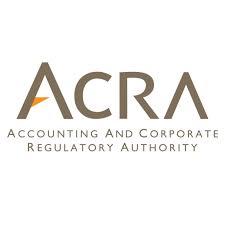Published on
May 16, 2024
Published on
May 16, 2024
Published on
May 16, 2024
Published on
May 16, 2024
Singapore Company List - Full Data
Singapore Company List - Full Data
Singapore Company List - Full Data
Singapore Company List - Full Data
Complete Data
/
Weekly Update
/
$100 - $10,000
Complete Data
/
Weekly Update
/
$100 - $10,000
Complete Data
/
Weekly Update
/
$100 - $10,000
Complete Data
/
Weekly Update
/
$100 - $10,000
Data Set : Singapore's Company List - Unique Entity Number
In the world of business and government interactions, efficiency is key. Singapore, known for its streamlined processes, has implemented a system that simplifies how entities interact with government agencies. This system is called UEN, or Unique Entity Number. Let's dive into what UEN is, why it matters, and how it works.
What is UEN?
UEN stands for Unique Entity Number. Think of it as the NRIC (National Registration Identity Card) for businesses and other registered entities in Singapore. Just as the NRIC uniquely identifies Singapore citizens, the UEN uniquely identifies entities in the country.
The Benefits of UEN
The primary advantage of UEN is convenience. With this single identification number, entities can interact with various government agencies seamlessly. Whether you're filing corporate tax returns or applying for import and export permits, you no longer need to juggle different identification numbers for different government departments. Your UEN is all you need.
Who Gets a UEN?
UEN is issued to entities that:
1. Have multiple interactions with government agencies
2. Are recognized by a UEN Issuance Agency (such as ACRA or ROS)
This includes businesses, local companies, LLPs (Limited Liability Partnerships), societies, and representative offices, among others.
It's important to note that UEN is not issued to:
- Individuals (who use their NRIC instead)
- Entities with no or only one-off interactions with a single government agency
- Sub-entities like branches or divisions of an entity (although some agencies may add sub-entity codes to UENs in their systems)
UEN Formats
There are three main UEN formats:
1. For businesses registered with ACRA: 9 digits (nnnnnnnnX)
2. For local companies registered with ACRA: 10 digits (yyyynnnnnX)
3. For all other entities: 10 digits (TyyPQnnnnX)
The format includes various components that provide information about the entity type and year of registration.
UEN Issuance Agencies
Several government agencies are responsible for issuing UENs, depending on the type of entity. These include:
- Accounting and Corporate Regulatory Authority (ACRA)
- Enterprise Singapore (ESG)
- Ministry of Culture, Community and Youth
- Ministry of Education (MOE)
- Ministry of Health (MOH)
- Monetary Authority of Singapore (MAS)
- Registry of Societies (ROS)
Each agency issues UENs for specific types of entities under their purview
Data Set : Singapore's Company List - Unique Entity Number
In the world of business and government interactions, efficiency is key. Singapore, known for its streamlined processes, has implemented a system that simplifies how entities interact with government agencies. This system is called UEN, or Unique Entity Number. Let's dive into what UEN is, why it matters, and how it works.
What is UEN?
UEN stands for Unique Entity Number. Think of it as the NRIC (National Registration Identity Card) for businesses and other registered entities in Singapore. Just as the NRIC uniquely identifies Singapore citizens, the UEN uniquely identifies entities in the country.
The Benefits of UEN
The primary advantage of UEN is convenience. With this single identification number, entities can interact with various government agencies seamlessly. Whether you're filing corporate tax returns or applying for import and export permits, you no longer need to juggle different identification numbers for different government departments. Your UEN is all you need.
Who Gets a UEN?
UEN is issued to entities that:
1. Have multiple interactions with government agencies
2. Are recognized by a UEN Issuance Agency (such as ACRA or ROS)
This includes businesses, local companies, LLPs (Limited Liability Partnerships), societies, and representative offices, among others.
It's important to note that UEN is not issued to:
- Individuals (who use their NRIC instead)
- Entities with no or only one-off interactions with a single government agency
- Sub-entities like branches or divisions of an entity (although some agencies may add sub-entity codes to UENs in their systems)
UEN Formats
There are three main UEN formats:
1. For businesses registered with ACRA: 9 digits (nnnnnnnnX)
2. For local companies registered with ACRA: 10 digits (yyyynnnnnX)
3. For all other entities: 10 digits (TyyPQnnnnX)
The format includes various components that provide information about the entity type and year of registration.
UEN Issuance Agencies
Several government agencies are responsible for issuing UENs, depending on the type of entity. These include:
- Accounting and Corporate Regulatory Authority (ACRA)
- Enterprise Singapore (ESG)
- Ministry of Culture, Community and Youth
- Ministry of Education (MOE)
- Ministry of Health (MOH)
- Monetary Authority of Singapore (MAS)
- Registry of Societies (ROS)
Each agency issues UENs for specific types of entities under their purview
Data Set : Singapore's Company List - Unique Entity Number
In the world of business and government interactions, efficiency is key. Singapore, known for its streamlined processes, has implemented a system that simplifies how entities interact with government agencies. This system is called UEN, or Unique Entity Number. Let's dive into what UEN is, why it matters, and how it works.
What is UEN?
UEN stands for Unique Entity Number. Think of it as the NRIC (National Registration Identity Card) for businesses and other registered entities in Singapore. Just as the NRIC uniquely identifies Singapore citizens, the UEN uniquely identifies entities in the country.
The Benefits of UEN
The primary advantage of UEN is convenience. With this single identification number, entities can interact with various government agencies seamlessly. Whether you're filing corporate tax returns or applying for import and export permits, you no longer need to juggle different identification numbers for different government departments. Your UEN is all you need.
Who Gets a UEN?
UEN is issued to entities that:
1. Have multiple interactions with government agencies
2. Are recognized by a UEN Issuance Agency (such as ACRA or ROS)
This includes businesses, local companies, LLPs (Limited Liability Partnerships), societies, and representative offices, among others.
It's important to note that UEN is not issued to:
- Individuals (who use their NRIC instead)
- Entities with no or only one-off interactions with a single government agency
- Sub-entities like branches or divisions of an entity (although some agencies may add sub-entity codes to UENs in their systems)
UEN Formats
There are three main UEN formats:
1. For businesses registered with ACRA: 9 digits (nnnnnnnnX)
2. For local companies registered with ACRA: 10 digits (yyyynnnnnX)
3. For all other entities: 10 digits (TyyPQnnnnX)
The format includes various components that provide information about the entity type and year of registration.
UEN Issuance Agencies
Several government agencies are responsible for issuing UENs, depending on the type of entity. These include:
- Accounting and Corporate Regulatory Authority (ACRA)
- Enterprise Singapore (ESG)
- Ministry of Culture, Community and Youth
- Ministry of Education (MOE)
- Ministry of Health (MOH)
- Monetary Authority of Singapore (MAS)
- Registry of Societies (ROS)
Each agency issues UENs for specific types of entities under their purview
Data Set : Singapore's Company List - Unique Entity Number
In the world of business and government interactions, efficiency is key. Singapore, known for its streamlined processes, has implemented a system that simplifies how entities interact with government agencies. This system is called UEN, or Unique Entity Number. Let's dive into what UEN is, why it matters, and how it works.
What is UEN?
UEN stands for Unique Entity Number. Think of it as the NRIC (National Registration Identity Card) for businesses and other registered entities in Singapore. Just as the NRIC uniquely identifies Singapore citizens, the UEN uniquely identifies entities in the country.
The Benefits of UEN
The primary advantage of UEN is convenience. With this single identification number, entities can interact with various government agencies seamlessly. Whether you're filing corporate tax returns or applying for import and export permits, you no longer need to juggle different identification numbers for different government departments. Your UEN is all you need.
Who Gets a UEN?
UEN is issued to entities that:
1. Have multiple interactions with government agencies
2. Are recognized by a UEN Issuance Agency (such as ACRA or ROS)
This includes businesses, local companies, LLPs (Limited Liability Partnerships), societies, and representative offices, among others.
It's important to note that UEN is not issued to:
- Individuals (who use their NRIC instead)
- Entities with no or only one-off interactions with a single government agency
- Sub-entities like branches or divisions of an entity (although some agencies may add sub-entity codes to UENs in their systems)
UEN Formats
There are three main UEN formats:
1. For businesses registered with ACRA: 9 digits (nnnnnnnnX)
2. For local companies registered with ACRA: 10 digits (yyyynnnnnX)
3. For all other entities: 10 digits (TyyPQnnnnX)
The format includes various components that provide information about the entity type and year of registration.
UEN Issuance Agencies
Several government agencies are responsible for issuing UENs, depending on the type of entity. These include:
- Accounting and Corporate Regulatory Authority (ACRA)
- Enterprise Singapore (ESG)
- Ministry of Culture, Community and Youth
- Ministry of Education (MOE)
- Ministry of Health (MOH)
- Monetary Authority of Singapore (MAS)
- Registry of Societies (ROS)
Each agency issues UENs for specific types of entities under their purview

Patreon
Patreon.com - Full Data
Complete Data
/
Weekly Update
May 1, 2024

Patreon
Patreon.com - Full Data
Complete Data
/
Weekly Update
May 1, 2024

Patreon
Patreon.com - Full Data
Complete Data
/
Weekly Update
May 1, 2024

Product Hunt
Product Hunt - Full Data
Complete Data
/
Weekly Update
Apr 1, 2024

Product Hunt
Product Hunt - Full Data
Complete Data
/
Weekly Update
Apr 1, 2024

Product Hunt
Product Hunt - Full Data
Complete Data
/
Weekly Update
Apr 1, 2024
BISTANK
Get instantly notified on your inbox when new data set is added
BISTANK
Get instantly notified on your inbox when new data set is added
BISTANK
Get instantly notified on your inbox when new data set is added
BISTANK
Get instantly notified on your inbox when new data set is added
